Graduate students and faculty from the Department of Rhetoric and Writing will be presenting their research at the Conference on College Composition and Communication (CCCC) in Kansas City, Missouri March 14-17, 2018.
CCCC sees some 3500 registrations from around the world, comprising some 1800 presenters.
Department Chair and former Chair of the CCCC Joyce Locke Carter says,
“With the entire discipline gathered in one place, our program shows our discipline that we’re growing and that we’re open for business. No matter where our faculty and students are at CCCC (presenting, sitting at the bar, eating next door at a restaurant, attending a caucus meeting), we represent the strength of the Rhetoric and Writing program at UA Little Rock.”
CCCC presentations represent the diversity of scholarship in the Department of Rhetoric and Writing: oral history research, gaming, social media identity, culturally responsive pedagogy, graduate mentorship, and online writing program development.
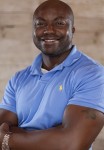
Melvin Beavers
Beavers’s presentation is titled “Higher Education and African American Men: A Writing Focused & Culturally Responsive Academic Plan.”
He will present about African American male student achievement disparity in higher education. Participants will brainstorm ways to shift first-year writing assignments toward an increased focus on the cultural capital students bring into the classroom.

Allison Holland
“Critical Narrative and Urgent Business: Veterans’ Oral Histories As Vanishing Cultural Records”
Allison Holland will be presenting as part of the panel “Oral Histories as Multi-modal Cultural Record: From the Classroom to the Community” with Kristena Merritt, Kimberly Thornton, and Gail Ricard. This presentation explains how an upper-level nonfiction writing class community-service project, which collected 16 oral histories from WWII and Vietnam veterans who received Distinguished Flying Cross citations, was reborn as a new project 10 years later. The project demonstrates how old materials can be reborn in community service projects when the goal is honoring veterans and preserving American history.
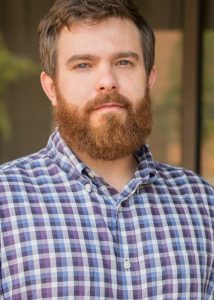 Caleb James
Caleb James
“Community-Based Mentorship in/as Graduate Education”
Focusing on community-based mentorship, the roundtable situates the labor of professionalizing as an integral, explicit component of graduate education. My contribution to this discussion looks at teaching philosophies as a site for the languaging, laboring, and transforming of graduate students’ pedagogical identities as well as their collective programmatic identities.
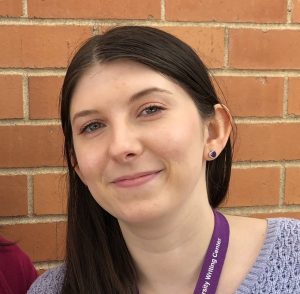 Kristena Merritt
Kristena Merritt
“Organizational History As Living Record: Preserving Writing Center Careers/History Through the Writing Center Research Project”
Kristena will be presenting as part of the panel “Oral Histories as Multi-modal Cultural Record: From the Classroom to the Community” with Allison Holland, Gail Ricard and Kimberly Thornton. The Writing Center Research Project collects and preserves historical materials relating to the evolution of writing center pedagogy and includes oral histories, regional and national organization documents, periodicals, books, artifacts, and projects available to researchers. The collection of historical materials is ongoing. This presentation provides an overview of what is available to researchers and how attendees can help preserve educational history by donating to the collection and participating in oral history projects.
 Brian Ray
Brian Ray
“Styling the Future: Hashtagging, Translanguaging, Naming, and a New Disciplinary Identity”
His presentation examines the way language is transforming the field, asserting that style has come to he nexus point of emerging disciplinary identity.
 Gail Richard
Gail Richard
“Oral History Problem Solving: Keeping an Oral History Project on Track When Things Fall Apart”
Ricard will speak about collecting primary and secondary research. Her secondary research helped her formulate better questions for the interview with a survivor of the Bataan death march about sensitive occurrences during the march. Video clips from the interviews will be presented.
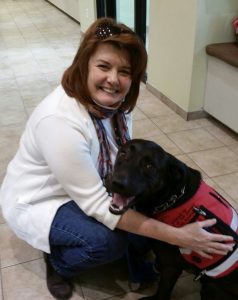
Kimberly Thornton
“Organizational History As Living Record: Preserving Writing Center Careers/History Through the Writing Center Research Project”
Kimberly will be presenting as part of the panel “Oral Histories as Multi-modal Cultural Record: From the Classroom to the Community” with Allison Holland, Kristena, Merritt, and Gail Ricard. The Writing Center Research Project collects and preserves historical materials relating to the evolution of writing center pedagogy and includes oral histories, regional and national organization documents, periodicals, books, artifacts, and projects available to researchers. The collection of historical materials is ongoing. This presentation provides an overview of what is available to researchers and how attendees can help preserve educational history by donating to the collection and participating in oral history projects.
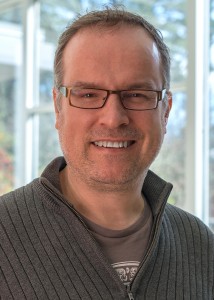
Joe Williams
“Building a Game to Replace a Textbook”
Williams’ presentation gives a high-level description of how to build a 3D simulation game designed to teach complex concepts and processes and then test it for learning effectiveness against a print textbook.
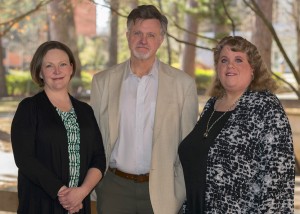 Heidi Harris, George Jensen, & Karen Kuralt (pictured) with Ross Bradley, Barbara Brewer, Suzanne Homsley, Melissa Johnson, Wendy McCloud, & Whitney Reuschling
Heidi Harris, George Jensen, & Karen Kuralt (pictured) with Ross Bradley, Barbara Brewer, Suzanne Homsley, Melissa Johnson, Wendy McCloud, & Whitney Reuschling
“Building Online Writing Programs that Enable Student Success”
Three online faculty and administrators are joined by six graduate students and alumni to provide an overview of the program and the initial results from their CCCC Research Initiative study. Student and alumni will speak to that research by sharing their perspectives on their experiences in fully- or partially-online writing programs.